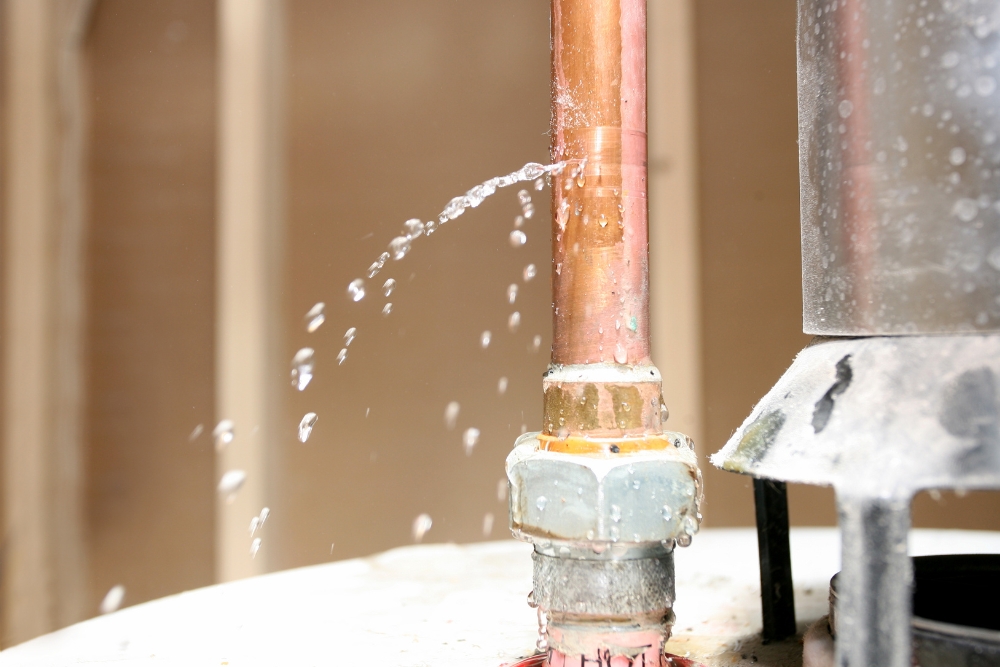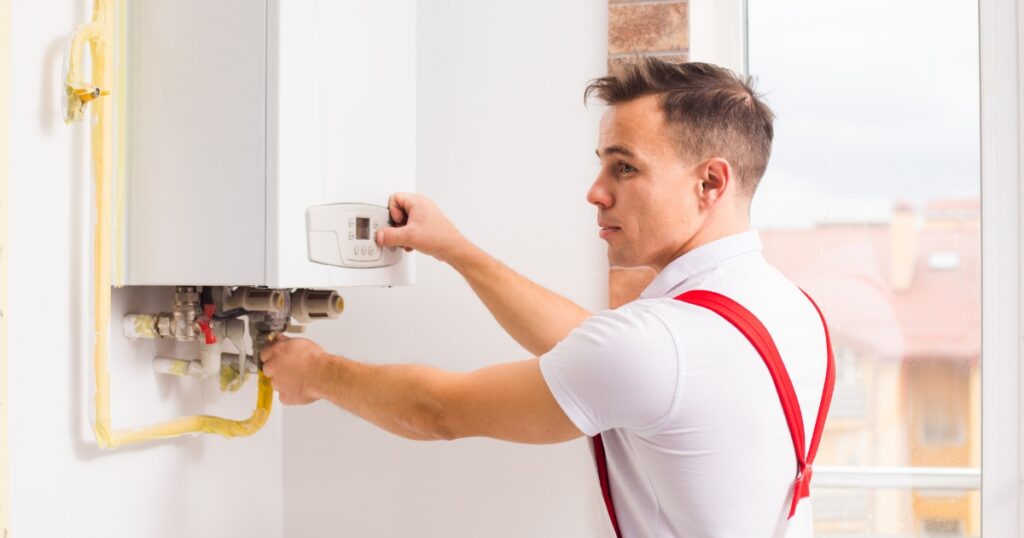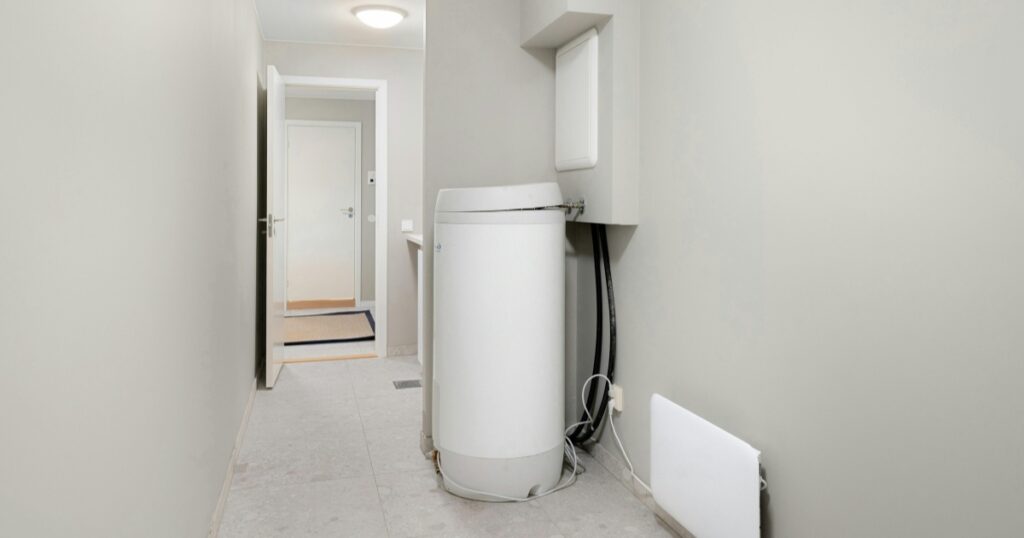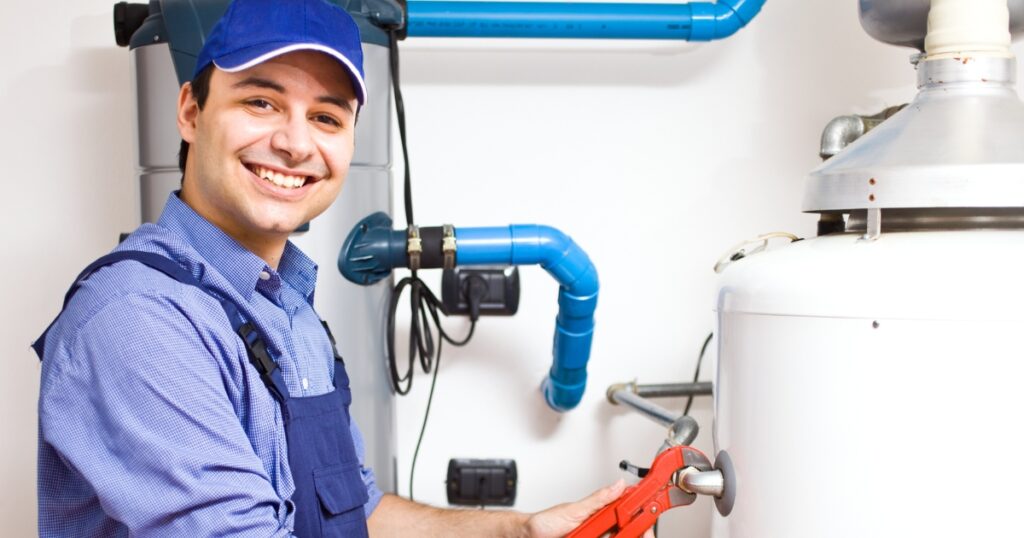Having a leak in your hot water system is like having an uninvited guest who just won’t leave, isn’t it? We know the feeling – a real spanner in the works. But don’t stress! After tons of digging around and talking to our top-notch tradies, we’ve pulled together this thorough guide to help you spot and fix those issues.
You’ll be surprised by tidbits like how something as simple as a dodgy pressure relief valve can cause leaks. So grab yourself a cuppa and settle in because after reading this, you’re going to tackle your hot water system repair with confidence.
Key Takeaways
- Identify the source of the leak by checking the top of the water tank, inspecting the pressure relief valve, and examining any loose connections.
- Turn off the water supply and power source to prevent further damage.
- Call a professional plumber to accurately diagnose and repair the issue.
- Consider replacing or repairing your hot water system based on factors such as the location of leaks and the age of the unit. Upgrading to an instant hot water system has benefits like on-demand hot water and energy efficiency.
- Troubleshoot common issues with Rinnai and Dux hot water systems by checking the power supply, and temperature setting, and calling a professional plumber for diagnosis if necessary.
Identifying the Source of the Leak in Your Hot Water System
To identify the source of a leak in your hot water system, check the top of the water tank, inspect the pressure relief valve, and examine any loose connections.
Top of the water tank
At the top of your hot water tank, significant leaks can occur due to various factors.
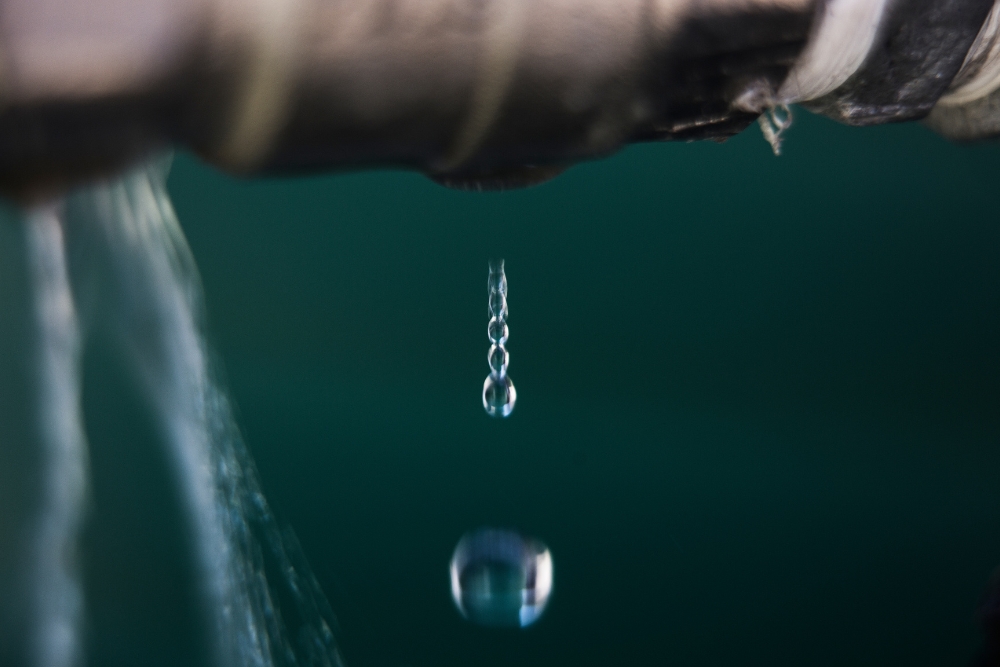
This often happens when the anode rod deteriorates over time, leading to corrosion and consequently leakage. A damaged or worn-out seal around the heating elements may also cause this issue. Spotting a leak here is usually not very challenging as you will see water dripping or trickling down from the top of the tank.
On spotting such leakages early, attempting a repair could be worthwhile. We suggest replacing either the faulty components causing these leaks or sealing off any loose connections.
However, if your hot water system age surpasses its average lifespan – generally about 8-12 years – it may be more practical and cost-effective to consider replacement rather than repair.
Leaks at this location should never be overlooked as they could lead to greater problems such as extensive property damage if not addressed promptly. While some fixes can be performed by handy homeowners, we strongly advise enlisting professional help for complex repairs like replacing corroded anode rods or fixing broken seals around heater elements for safety reasons.
Pressure relief valve
The pressure relief valve is a crucial component of your hot water system that helps to regulate the pressure inside the tank. It prevents excessive pressure from building up, which can lead to leaks or even explosions.
To check if your pressure relief valve is functioning properly, lift the lever and look for any water discharge. It’s important to do this at least once a year as part of regular maintenance.
If you notice any signs of leakage or if the valve fails to release water when lifted, it may be faulty and in need of replacement. Consulting a professional plumber will ensure that the issue is addressed safely and efficiently.
Loose connections
If you notice a leak in your hot water system, one possible cause could be loose connections. Over time, the fittings and pipes in your system can become loose, leading to water leakage.
This can occur due to normal wear and tear or incorrect installation. Loose connections are often easy to identify by visually inspecting the pipes and fittings for any signs of water dripping or pooling around them.
Resolving this issue typically involves tightening the connections with a wrench or spanner. It is important to address loose connections promptly to prevent further leakage and potential damage to your hot water system.
Steps to Fix a Leaking Hot Water System
To fix a leaking hot water system, start by turning off the water supply and power source. Then, call a professional plumber to assess and repair the issue.
Turn off the water supply
To address a leak in your hot water system, the first step is to turn off the water supply. This will help prevent any further damage and minimise the amount of water being wasted.
By shutting off the water supply, you can isolate the problem and prepare for repairs or professional assistance. Remember, it’s important to act quickly when dealing with leaks to avoid potential flooding or costly repairs.
Turn off the power source
To address a leak in your hot water system, one of the first steps you should take is to turn off the power source. This is crucial for safety and to prevent any further damage or accidents.
By turning off the power, you can minimise the risk of electrical shocks or other hazards while inspecting and repairing the leak. Remember, if you’re unsure how to do this safely, it’s always best to call a professional plumber who can handle the job for you.
Taking this simple precaution can help protect both yourself and your hot water system during the repair process.
Call a professional plumber
If you’re dealing with a leak in your hot water system, it’s best to call a professional plumber. They have the expertise and knowledge to accurately diagnose the issue and provide the necessary repairs or replacements.
Trying to fix the problem yourself could lead to further damage or even potential safety hazards. By calling a professional plumber, you can ensure that the repair is done correctly and efficiently, saving you time and money in the long run.
Don’t hesitate to reach out for help when it comes to addressing leaks in your hot water system.
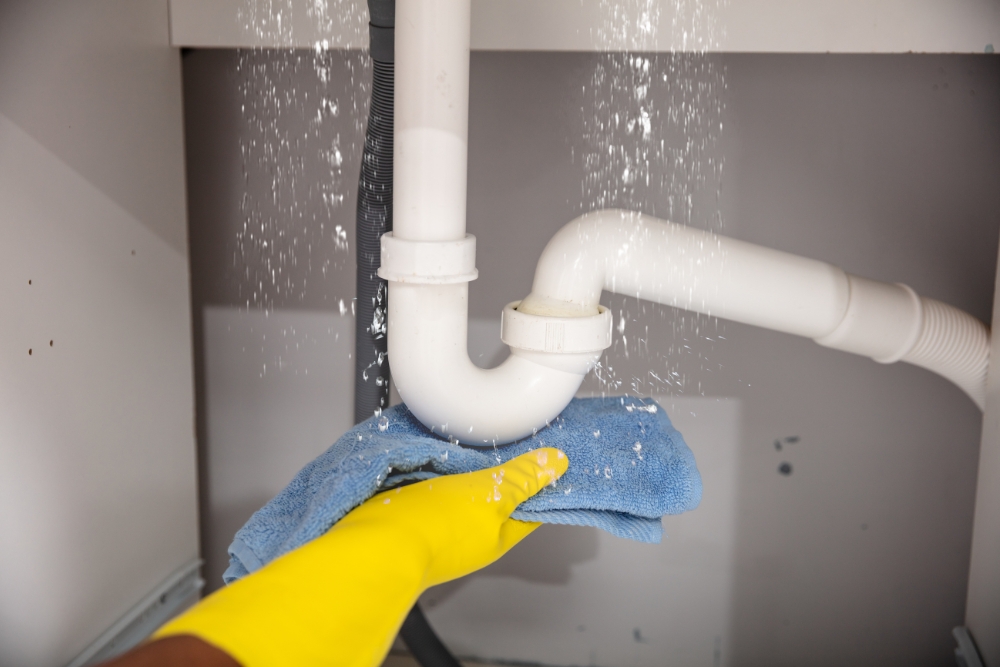
Why Is Your Hot Water System Leaking?
Possible causes for hot water system leaks include a leaking tank or a faulty pressure relief valve. Read on to find out more about why your hot water system might be leaking and how to address the issue.
Leaking tank
If you notice a leaking tank in your hot water system, it’s essential to address the issue promptly. A leaking tank can lead to water damage and reduced efficiency of your hot water unit.
To fix this problem, first, turn off the power supply and the water source to prevent further leakage. Next, contact a professional plumber who can assess the situation and determine whether a repair or replacement is necessary.
Remember that regular maintenance and addressing leaks as they occur will help prevent more significant issues with your hot water system in the long run.
Faulty pressure relief valve
A faulty pressure relief valve is a common cause of hot water system leaks. You can check if your pressure relief valve is the problem by lifting the lever and looking for any water discharge.
It’s important to locate and test this valve at least once a year to ensure it’s functioning properly. If you have a faulty pressure relief valve, it may need to be replaced by a professional plumber.
Ignoring or neglecting this issue could lead to further damage and potentially dangerous situations, so it’s essential to address it promptly.
Replacing or Repairing a Leaking Hot Water System
When it comes to addressing leaks in your hot water system, you may need to consider replacing or repairing the unit. We’ll discuss the factors to consider and the benefits of upgrading to an instant hot water system.
Plus, we’ll provide troubleshooting tips for popular brands like Rinnai and Dux. Don’t miss out on this important information.
Factors to consider
When addressing leaks in your hot water system, there are several factors to consider. First, you need to identify the location of the leak and determine if it can be repaired or if a replacement is necessary.
The age of your hot water unit also plays a role in this decision-making process. Additionally, you should take into account the extent of damage caused by the leak and whether it poses any safety risks.
Consulting a professional plumber is important for the proper diagnosis and repair of hot water system leaks. Regular maintenance and addressing leaks as they occur can help prevent major issues with your hot water system in the future.
Benefits of upgrading to an Instant Hot Water System
Upgrading to an Instant Hot Water System comes with a range of benefits for homeowners. Firstly, these systems provide hot water on demand, eliminating the need for a storage tank and reducing the waiting time for hot water.
This can be especially convenient during peak usage times when multiple family members are using hot water simultaneously. Additionally, instant hot water systems are energy-efficient, as they only heat the water that is required at any given moment, rather than continuously heating and storing large volumes of water.
This can result in significant cost savings on energy bills over time. Lastly, instant hot water systems take up less space and have a longer lifespan compared to traditional storage tanks, making them a practical option for homeowners looking to maximise their available living space while enjoying reliable access to hot water.
Troubleshooting tips for Rinnai and Dux hot water systems
When troubleshooting Rinnai and Dux hot water systems, there are a few tips that can help you identify and resolve common issues. First, check the power supply to ensure it is connected properly.
If the system still isn’t working, try resetting it by turning off the power for a few minutes and then turning it back on. Next, check the temperature setting on your unit to make sure it is set correctly.
If you notice any strange noises or smells coming from your hot water system, it could indicate a problem with the gas burner or other components. In these cases, calling a professional plumber is recommended for proper diagnosis and repair.
Get Your Hot Water System Leaks Repaired
In conclusion, addressing leaks in your hot water system repair is crucial to prevent further damage and ensure the efficient operation of your unit. By identifying the source of the leak, turning off the water supply and power source, and calling a professional plumber for repairs, you can resolve these issues effectively.
Regular maintenance and testing of components such as the pressure relief valve will also help prevent future leaks. Don’t hesitate to seek professional assistance to address leaks in your hot water system promptly.

